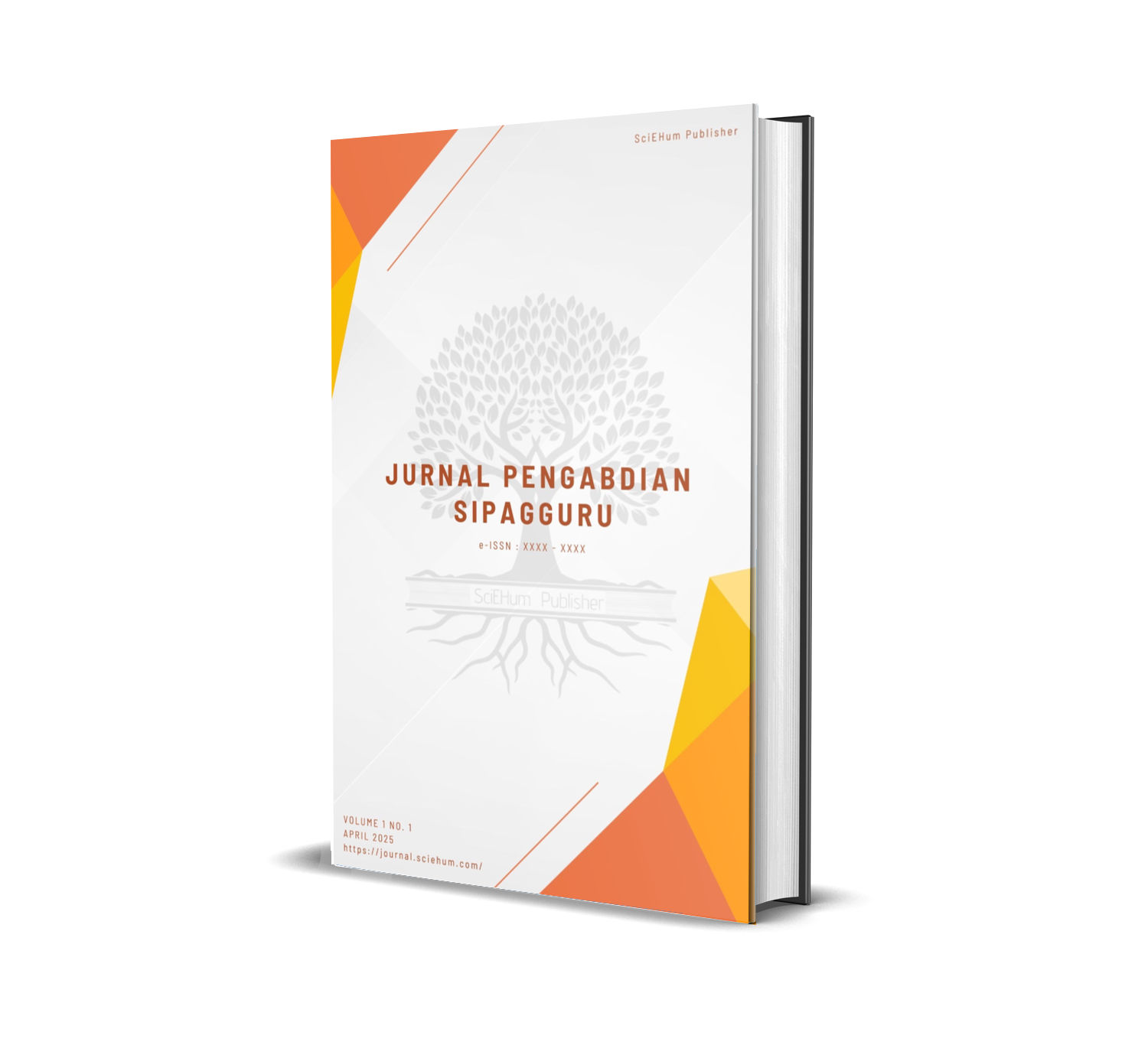Merajut Inovasi: Sinergi Teknologi Dan Bisnis Kreatif Dalam Pemberdayaan Ekonomi Perempuan Di Ereng-Ereng
Kata Kunci:
Kewirausahaan, Literasi Ekonomi, Literasi Pendidikan, Pemberdayaan Perempuan, Teknologi InformasiAbstrak
Penelitian ini berfokus pada pemberdayaan perempuan di Desa Ereng-Ereng melalui peningkatan literasi pendidikan dan ekonomi mereka, sambil memanfaatkan teknologi informasi untuk mendorong kewirausahaan. Penelitian ini menerapkan metode Penelitian Aksi Partisipatif (PAR), yang secara aktif melibatkan perempuan dalam merancang dan melaksanakan strategi bisnis berbasis syariah. Kegiatan program meliputi seminar dan sesi pelatihan praktis, yang memberikan peserta pengetahuan praktis tentang e-commerce dan manajemen bisnis. Hasil penelitian menunjukkan kemajuan yang signifikan, karena proporsi peserta yang sebelumnya tidak memiliki pengetahuan tentang e-commerce menurun drastis, dengan 85% peserta memperoleh pemahaman yang kuat setelah pelatihan. Banyak peserta mengungkapkan kepercayaan diri yang meningkat untuk memulai usaha sendiri dan menunjukkan antusiasme yang kuat untuk melanjutkan perjalanan belajar mereka. Kesimpulannya, inisiatif ini berhasil memperkuat kemandirian ekonomi perempuan di Desa Ereng-Ereng. Untuk program di masa depan, disarankan untuk meningkatkan sistem pembinaan dan melibatkan lebih banyak pemangku kepentingan untuk memastikan keberlanjutan dan pertumbuhan usaha yang dipimpin oleh perempuan.
Referensi
Adeleke, R., & Alabi, O. (2024). Urban–rural differences in women’s use of mobile money in Nigeria. Women’s Studies International Forum, 103, 102811. https://doi.org/10.1016/j.wsif.2024.102811
Asongu, S. A., le Roux, S., & Tchamyou, V. S. (2024). Mobile money innovations, income inequality and gender inclusion in Africa. Financial Innovation, 10, 2. https://doi.org/10.1186/s40854-023-00553-8
Brieger, S. A., et al. (2024). Gender differences in entrepreneurs’ work–family conflict during the COVID-19 pandemic. The Service Industries Journal. https://doi.org/10.1080/00472778.2023.2235755
De Clercq, D., Kaciak, E., & Thongpapanl, N. (2022). Women entrepreneurs’ work-to-family conflict and firm performance. International Small Business Journal, 40(7), 818–840. https://doi.org/10.1177/02662426211011405
GSMA. (2022). The Mobile Gender Gap Report 2022. https://www.gsma.com/r/wp-content/uploads/2022/06/The-Mobile-Gender-Gap-Report-2022.pdf
Handayani, S., & Prasetyo, A. (2024). Partisipasi peserta dalam evaluasi program pengabdian masyarakat berbasis UMKM. Jurnal Abdimas Nusantara, 6(1), 45–56. https://doi.org/10.24853/jan.6.1.45-56
Hendratmi, A., Sunardi, N., Widianingsih, I., & Chamidah, N. (2022). Livelihood strategies of women entrepreneurs in Indonesia during COVID-19. Heliyon, 8(9), e10206. https://doi.org/10.1016/j.heliyon.2022.e10206
How Shariah-compliant digital payments influence Muslim customers’ purchase decision. (2025). Journal of Islamic Accounting and Business Research. https://doi.org/10.1108/JIABR-06-2024-0202
Jiang, Y., et al. (2024). The roles of work–family conflict and openness to experience in entrepreneurial intention. Journal of Business Research, 171, 114185. https://doi.org/10.1016/j.jbusres.2023.114185
Jiménez-Zarco, A. I., Ficapal-Cusí, P., & González-González, I. (2021). Female micro-entrepreneurs and social networks. Sustainability, 13(4), 2049. https://doi.org/10.3390/su13042049
Journal of Islamic Marketing. (2024). The role of halal value chain, Sharia financial inclusion, and digital economy in socio-economic transformation. https://doi.org/10.1108/JIMA-03-2024-0108
Mukhlisin, M., et al. (2025). Islamic microfinance and women’s empowerment: Case studies of Indonesia and Pakistan. Journal of Islamic Monetary Economics and Finance. https://jimf-bi.org/JIMF/article/view/1747
Nur Asrofi, D. A., et al. (2023). Internet utilization and Indonesian female entrepreneurs’ participation during the pandemic. Cogent Social Sciences, 9(1), 2273347. https://doi.org/10.1080/23311886.2023.2273347
Paul, J., et al. (2023). Digital entrepreneurship research: A systematic review. Journal of Business Research, 157, 113609. https://doi.org/10.1016/j.jbusres.2023.113609
Rahayu, N. S., Masduki, & Nur Ellyanawati, E. R. (2023). Women entrepreneurs’ struggles and use of social media in Indonesia. Journal of Innovation and Entrepreneurship, 12, 51. https://doi.org/10.1186/s13731-023-00322-y
Rozalinda, & Sakina, R. (2024). Economic empowerment of unbanked women through Sharia banking in Indonesia. Cogent Business & Management, 11(1), 2407921. https://doi.org/10.1080/23311975.2024.2407921
Sarker, P., et al. (2025). Examining consumer adoption of social commerce. Technological Forecasting & Social Change, 208, 122307. https://doi.org/10.1016/j.techfore.2024.122307
Senali, M. G., Jayasena, S., & Perera, C. (2024). Determinants of trust and purchase intention in social commerce. Telematics and Informatics, 87, 101947. https://doi.org/10.1016/j.tele.2023.101947
Siregar, R., Hutapea, D., & Lubis, M. (2023). Monitoring dan pendampingan sebagai strategi keberlanjutan program pelatihan kewirausahaan. Jurnal Pengabdian Kepada Masyarakat Indonesia, 5(2), 120–131. https://doi.org/10.26740/jpkmi.v5i2.120
Susanti, E., Mulyanti, R. Y., & Wati, L. N. (2023). MSMEs performance and competitive advantage: Evidence from women’s MSMEs in Indonesia. Cogent Business & Management, 10, 2239423. https://doi.org/10.1080/23311975.2023.2239423
Wijaya, L. I., et al. (2025). Scope of e-commerce use, innovation capability, and MSME performance in the food sector. Journal of Innovation & Knowledge, 10(3), 100498. https://doi.org/10.1016/j.jik.2024.100498
World Bank. (2025). Women’s Entrepreneurship: 25 years of progress (GEM highlights). https://www.gemconsortium.org/reports/womens-entrepreneurship
Wurjaningrum, F., Ubaidillah, M., & Atiya, N. (2024). Islamic microfinance institutions and women’s empowerment: Challenges and solutions. [Preprint/PDF]. https://pdfs.semanticscholar.org/05b8/45b4306196d6814db8c11696b3548672a6ff.pdf
Unduhan
Diterbitkan
Terbitan
Bagian
Lisensi
Hak Cipta (c) 2025 Jurnal Pengabdian Sipagguru

Artikel ini berlisensiCreative Commons Attribution-ShareAlike 4.0 International License.







